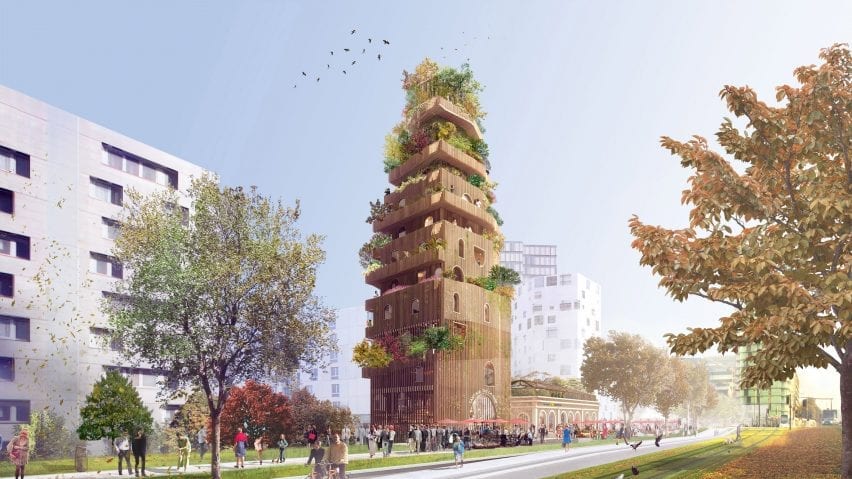A timber shortage in France has forced prices up as architects struggle to comply with a new environmental law that requires public buildings to be 50 per cent wood.
French architects are reporting price rises of up to 50 per cent since the start of the year.
"The prices are going up every week," said Christophe Lemoal of Paris studio Lemoal-Lemoal. "We have two construction projects where the wood company can't give us any date for the delivery because they can't find the supply."
Michel Hardoin of Bordeaux architect A6A said shortages were affecting "all project scales from the smallest to the largest."
He added: "It mainly concerns structural timber, both posts and beams or panels."
Last year, France announced a new law requiring half of the materials used to construct public buildings to be wood or other natural substances. The law is part of the country's drive to become carbon neutral by 2050.
"At the moment in France there is a lot of interest in building in wood because the new law that is being implemented obliges all the buildings to respect a certain carbon footprint," said Paris-based architect Lina Ghotmeh.
Despite being one of the forested countries in Europe, with over 30 per cent of its land covered in trees, the country's timber products industry is under-developed. This means architects have to source wood from other countries.
"We do have a lot of wood in France but we don't have enough industries that transform the wood into construction materials," said Ghotmeh.
The rush for timber in France has coincided with a worldwide slowdown of production due to the coronavirus pandemic. On top of this, French oak is highly prized in China, which buys lumber at prices that are too high for local users.
In addition, global timber supply chains are still reeling from tariffs imposed in 2018 by former US president Donald Trump on imports of Canadian timber.
This caused softwood lumber prices to triple in the US last year, leading American specifiers to order wood from other countries, including key European suppliers such as Sweden and Finland.
Architects around the world are reporting difficulty sourcing timber as well as other materials including steel, cement and aggregates as construction activity bounces back after the pandemic and supply chains struggle to resume production levels.
But the timber shortage in France is particularly acute due to the combination of new regulations and a surge in projects ahead of the 2024 Summer Olympics being held in Paris.
Ghotmeh said that several of her projects have been affected by the timber shortage, including a housing project for the Olympic village that will house athletes at the games.
"What we're doing is either we're adapting the projects or putting more budget into the projects to be able to let them go ahead and be constructed," she said.
"We're trying to find other bio-sourced materials and trying to find solutions to lower our carbon footprint by using mixed materials," she added. "For example, at one of our projects in the south of France we're using an optimised wood composite structure."
Architects are being forced to innovate, she added, exploring new materials such as low-carbon concrete.
Ghotmeh said the timber shortage highlighted the "absurdity of our world economy" whereby timber grown in France is exported to China and America, leaving local architects with a shortfall.
"This is quite a disaster for France because we need to construct and work in wood," she said. "If we want to move closer to our goals of reducing our carbon footprint we have to use local materials and develop local industries."

